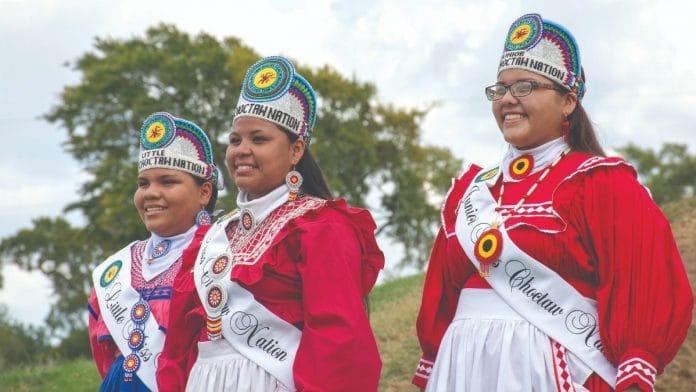New Delhi: The coronavirus pandemic has halted the world in its tracks and uprooted the lives of many but has also resulted in US Native tribes and the Irish renewing a 173-year-old connection.
In 1847, during the Great Famine, members of the Choctaw Nation had collected $170 (approximately $5,000 today) to help the starving poor of Ireland.
The Irish remember.
So, when a GoFundMe campaign to help the Navajo and Hopi nations was started last month, small donations started coming in from places like Cork, Limerick, and Dublin to return the humanitarian help they received from across the great sea.
Having raised $3,684,340 of the $5,000,000 goal, messages of solidarity have been pouring in.
“In Ireland, we never forgot the generosity of your Choctaw Brothers & Sisters. Happy to contribute something small for now,” wrote Sean. O. Dubhlain after donating $25 to the cause.
Pat Hayes, another Irishman, said, “From Ireland, 170 years later, the favour is returned! To our Native American brothers and sisters in your moment of hardship.”
More than 20,000 donors are either from Ireland or are Americans of Irish descent, and have contributed $820,000 of the total amount.
Choctaw member LeAnne Howe said, “I do think this story really has its roots in what we are as a people — certainly, from the Choctaws, that’s what we are — and now the Irish are returning that gift back to this country and back to the Navajo.”
Also read: American flies to Germany to meet girlfriend, is caught disguised as a janitor
Funding humanity
The money raised is used to provide people with food, water and other essential items in an area that is called a “food desert”. There are only 13 grocery stores in Navajo to serve some 180,000 people, and only three small grocery marts in Hopi to cater to around 3,000 people.
To further compound the problems during the pandemic, these communities have high numbers of elderly, diabetic, asthmatic, and cancer-afflicted (i.e., high risk) individuals, according to a Vox report, thus making them more susceptible to the viral infection.
More than 3,200 people have tested positive and nearly a 100 have died so far in the area that spans across 27,000 square miles (about 70,000 square kilometres) and is already facing shortage of emergency funds needed for testing and equipment.
“The whole idea is to keep families out of the grocery store for two or more weeks at a time so they’re not exposed to the virus,” Theresa Hatathlie-Delmar, a fund volunteer said.
Also read: World is talking in R0 values and infection rates, but coronavirus doesn’t care for such data
More than 170 years ago
The Great Famine or Great Hunger lasted in Ireland for five years (1845-1849) and claimed about a million lives while close to 2 million emigrated out of the country, causing its population to drop significantly.
Also called the Irish Potato Famine, it was caused due to crop failure over successive years due to late blight, “a disease that destroys both the leaves and the edible roots, or tubers, of the potato plant”, and came to be known as the worst famine in Europe in the 19th century.
Not far removed from its own tragedy, the Choctaw nation donated the money to Ireland just 16 years after they went through a series of forced relocations of 60,000 Native Americans from their ancestral homes in the Southeastern United States to areas west of the Mississippi River that had been designated as Indian Territory.
“One hundred seventy years later for this issue to resonate with the Irish is a testament to their kind heartedness and generosity,” said Ethel Branch, who started the fundraiser. “Native American issues often go disregarded or are ignored. For this to register with anyone and for it to register overseas, this is amazing,” she added.
Also read: Coronavirus a hoax, fearing it a sin, believed several US pastors and many have since died






